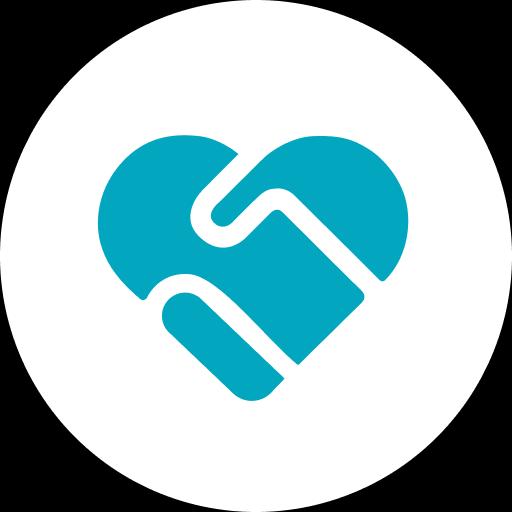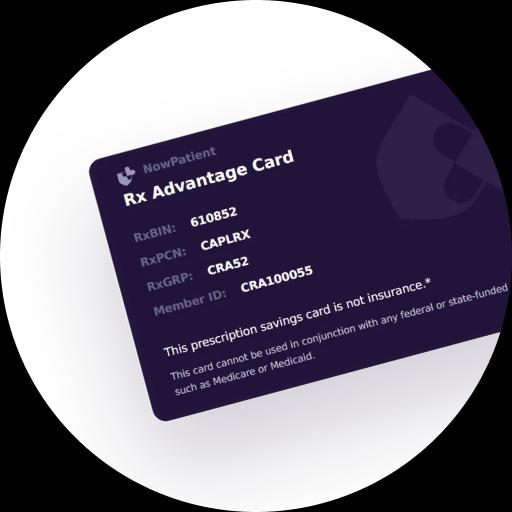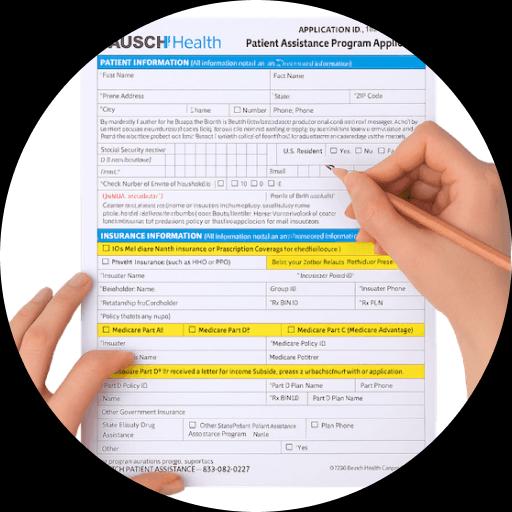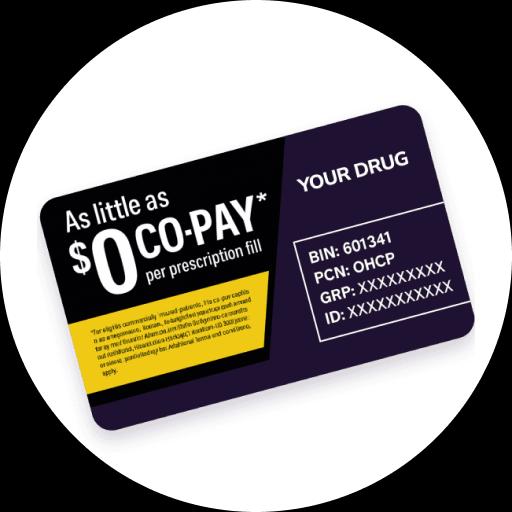Save on Digoxin with Coupons, Discounts & Savings Programs


Start Saving Today!
Lower the Cost of Your Digoxin Prescription
More great savings
View Related Brands
MEDICAL INFORMATION
Digoxin Key Facts
What dosages is Digoxin available in?
Digoxin is available as a 62.5 mcg, 125 mcg, and 250 mcg oral tablet.
What is Digoxin used for?
Digoxin is an antiarrhythmic that is used to treat heart failure in adults and children ages 5 years and older and atrial fibrillation (AFib) in adults.
How does Digoxin work?
Digoxin is a cardiac glycoside. It works by blocking a protein in your heart, which in turn causes your heart to pump more strongly with each beat. This helps people with heart failure get more blood and oxygen to the rest of their body. Digoxin also slows down the electrical activity in the heart, which helps people with atrial fibrillation have better control on their heart rate.
How do I take Digoxin?
Digoxin is dosed based on many factors such as your body weight, kidney health, age, and other medications you’re taking.
Your physician will adjust your dose based on blood levels of Digoxin and if you’re having side effects.
Is it safe for me to take Digoxin?
Digoxin is a safe and effective treatment when used for FDA licensed indications. However, like all medications, they may give you unwanted side effects. You should always discuss potential side effects with your physician to ensure the medication is suitable and right for you. You should not use this medication if you have ventricular fibrillation or a known hypersensitivity to Digoxin or other forms of digitalis.
Digoxin Common Side Effects
Common side effects of Digoxin:
- Changes in heart rate
- Nausea
- Vomiting
- Diarrhea
- Reduced appetite
Digoxin Serious Side Effects
Serious side effects are rare with Digoxin. Contact your healthcare provider immediately if you experience any of the following.
- Abnormal heart rhythm: chest pain, chest discomfort, palpitations, shortness of breath, fatigue, weakness, sweating
- Digoxin toxicity: nausea, vomiting, loss of appetite, changes in vision, confusion, palpitations, or abnormally slow heart rate
Effects of other drugs, drug classes and over-the-counter products on Digoxin
The following medications may interact with Digoxin:
- PGP Inducers/Inhibitors: Drugs that induce or inhibit PGP have the potential to alter Digoxin pharmacokinetics
- The potential for drug-drug interactions must be considered prior to and during drug therapy. See full prescribing information
Who makes Digoxin?
Various FDA-approved generic manufacturers
Is Digoxin safe in pregnancy?
Digoxin should be given to a pregnant woman only if clearly needed. It is also not known whether Digoxin can cause fetal harm when administered to a pregnant woman or can affect
reproductive capacity.
What is the brand name for Digoxin?
Medical Disclaimer
NowPatient has taken all reasonable steps to ensure that all material is factually accurate, complete, and current. However, the knowledge and experience of a qualified healthcare professional should always be sought after instead of using the information on this page. Before taking any drug, you should always speak to your doctor or another qualified healthcare provider.
The information provided here about medications is subject to change and is not meant to include all uses, precautions, warnings, directions, drug interactions, allergic reactions, or negative effects. The absence of warnings or other information for a particular medication does not imply that the medication or medication combination is appropriate for all patients or for all possible purposes.
OUR CUSTOMERS VIEW
What Customers Love About Our Service
We want everyone to be happy and healthy, that’s what keeps us going. Read what some of them have to say about us.
Medicines Experts
Meet Our Medical Team
We are a broad skilled and passionate group of clinicians with experience of operating in health systems in the United Kingdom & United States. Providing excellent care and advice is at the heart of everything we do. You can read more about our medical team by visiting the medical team page or learn more about how we curate content by visiting our editorial process

























